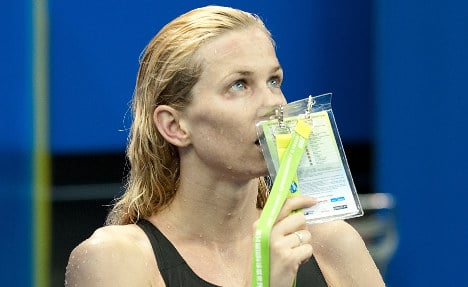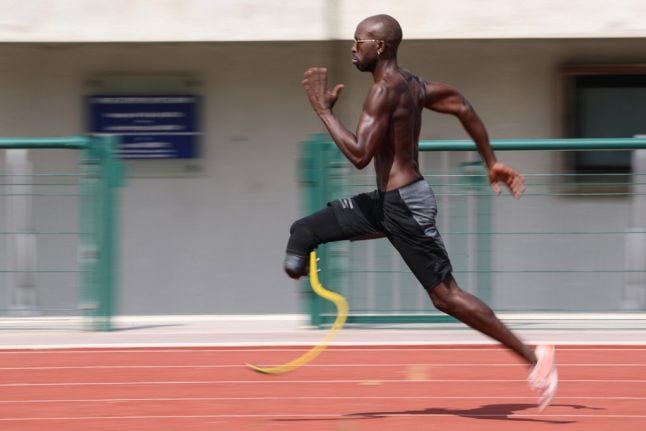The double world and Olympic champion withdrew after scraping into the semi-finals with the lowest qualifying time of 54.86sec, nearly two seconds off her 2009 world record of 52.07.
Steffen, who claimed the 50m and 100m freestyle double at the Beijing Olympics and repeated the feat at the 2009 world championships, was at a loss to explain her poor performance.
“I gave everything – I had no more to give,” she said. “I can’t explain it. I was in great shape and very optimistic. I’m in good health. I would give you answers if I had them.”
Steffen, 27, led Germany to bronze in the 4x100m freestyle relay in her only other performance in Shanghai. She had been due to take part in the 50m freestyle on Saturday.
Coach Norbert Warnatzsch said he needed to “protect” Steffen, who suffered sinus problems last year before making a low-key return in November.
“She will not do any further starts,” said Warnatzsch. “We have to protect her.”
Steffen had been expected to spearhead Germany’s challenge alongside her partner Paul Biedermann, who has also lost both of his 2009 world titles in the 200m and 400m freestyle.
Meanwhile America’s Ryan Lochte continued his charge with fourth place in the 200m backstroke heats as he aims to build on his 200m freestyle win, when he shocked superstar team-mate Michael Phelps.
The two will go head-to-head again later Thursday in the 200m individual medley, when Olympic champion Phelps will try to keep alive his hopes for a second straight five-victory haul.
Japan’s Olympic title-holder Kosuke Kitajima safely reached the 200m breaststroke semi-finals as he bids to reclaim his 2007 world title after skipping the Rome championships.
America’s Rebecca Soni, tipped as a challenger for the 200m breaststroke world record, topped the heats in 2:23.30, trailing Annamay Pierse’s 2009 mark of 2:20.12. Soni has already won 100m breaststroke gold.
In Thursday’s other finals, Australia’s James Magnussen, 20, is favourite for the men’s 100m freestyle and team-mates Jessicah Schipper and Stephanie Rice will both challenge for the 200m butterfly title.
World record-holders China will be hopeful of claiming their fourth swimming gold in Shanghai by successively defending their women’s 4x200m freestyle title.
AFP/mry





 Please whitelist us to continue reading.
Please whitelist us to continue reading.
Member comments